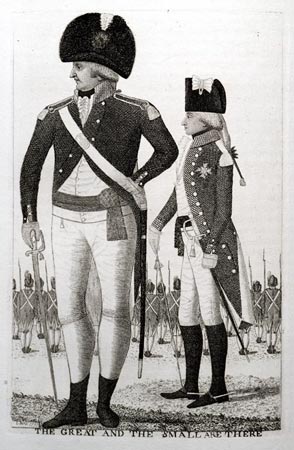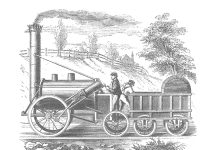It was a song said to have been sung in the streets of Manchester in the late eighteenth century and commemorated one of the town’s most glorified villian and all round cad.
Roger Aytoun, better known as Spanking Roger, scandalised eighteenth century society when he married Barbara Minshull, widow of Thomas, a noted apothecary.
The pair, it is rumoured met while Roger was taking part in a race on Kersal Moor.Barbara, it is said, attracted to his physique and Rogre, finding that she was the possessor of great wealth lost no time in getting her approval for marriage.
A Scot by birth, he was an officer in the Marquess of Lothians regiment, also referred to as the Inchdairnie in the County of Fife.
Arriving in Manchester, as an officer in the Royal Manchester volunteers who had taken part in the defence of Gibraltar from the combined attacks of France and Spain, he would march through the streets with a watch suspended from a banner which was given as a reward to the first recruit.
It is said that he would frequently challenge people to a fight on the understanding that if they lost they would have to join his regiment.
But back to Barbara Minshull who soon realised the error of her ways.Friends were already shocked by the great disparity in age she was sixty five, he, half her age.
He was so drunk on his wedding day, it is said that he had to be assisted to the ceremony at Manchester Collegiate Church, now the Cathedral by friends.
He then proceeded to turnBarbara’s family Hall, Hough, into a den of iniquity. His parties, famed throughout the town would soon cut into the lady’s wealth.
Eventually as the money ran out,the Minshulls were forced to leave their twenty six acres in Moston as well as being forced to sell their two other properties,Garrett and Chorlton Halls in 1774.
Barbara died in 1783, she was buried in the Collegiate, but Roger remarried the following August in Scotland to a Miss Sinclair, staying with his wife for a week at the most.







